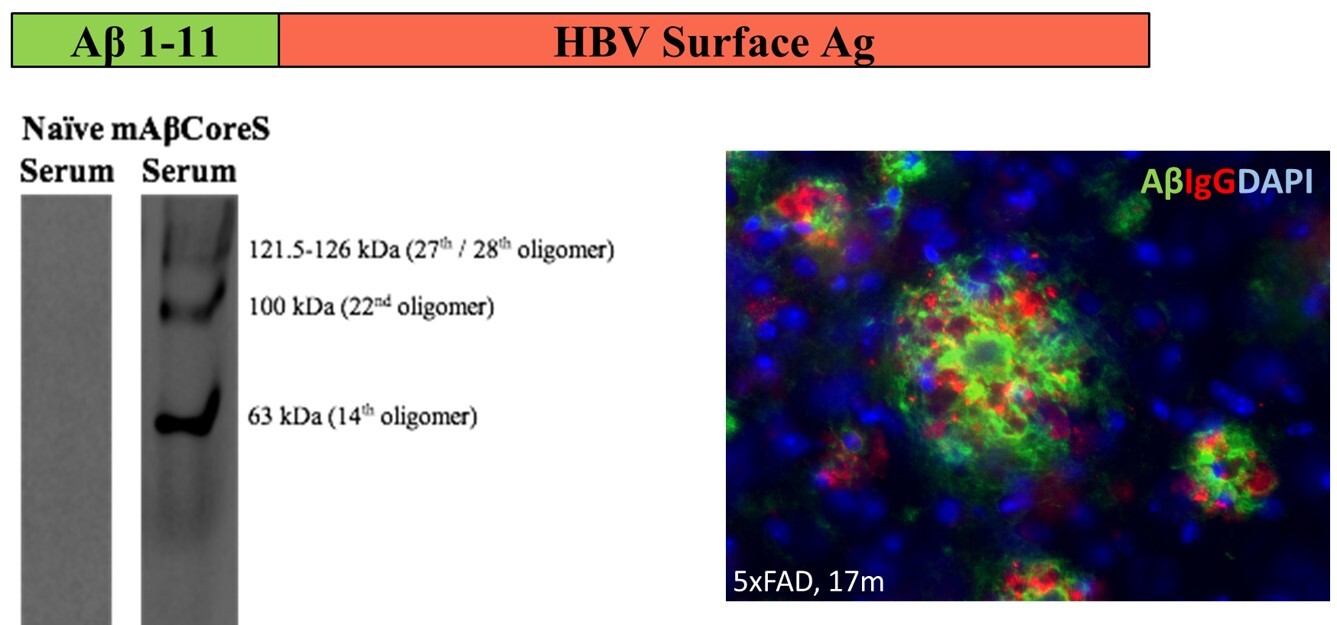The increase in maternal age worldwide, a known risk factor for a Down syndrome (DS) pregnancy, along with the persistent prevakence of DS in the world population, stresses the need to address any potential mechanistic link between pregnancy with DS fetus and maternal late-onset Alzheimer's disease (LOAD).
From a clinical perspective, we encourage the development of potential new treatment strategies for behavioral abnormalities associated with a DS pregnancy by determining the extent, identity and routes of APP feto-maternal transfer. Full characterization of maternal neuropathology and behavioral cognitive deficits following pregnancy with an APP over-expressing fetus will enable the development of maternal APP-specific interventions during pregnancy or alternatively justify careful surgical interventions during pregnancy and labor, to lower the risk of maternal LOAD.
In our laboratory, we generate DNA vaccines that express the APP fragments peptides fused to Hepatitis-B virus surface antigen (HBsAg), an antigenic source of the human hepatitis-B virus (HBV) vaccine, and they also contain the Hepatitis-B capsid antigen (HBcAg) to provide a T helper response that promotes antibody production by B-lymphocytes. These vaccines may be helpful as a preventative treatment for maternal cognitive decline following DS pregnancies

